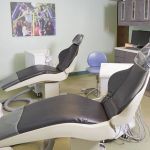Why the Transition from Pediatric to Adult Dental Care Matters
As a teenager, the world of dental care often feels like a smooth routine. Regular checkups with a pediatric dentist, familiar faces, and a gentle approach to treatments make everything feel comfortable. However, as we approach adulthood, it becomes crucial to understand that dental care evolves, and transitioning from pediatric to adult dental care requires more than just a change of dentist.
I remember the first time I had to make this shift. It wasn’t just about switching to a new dentist; it was about a new level of responsibility for my oral health. Growing up, my pediatric dentist made me feel like I was part of a family, and I trusted them completely. But when I turned 18, it was time to move to an adult dental practice. The experience was overwhelming at first, but it made me realize how essential it is to prepare for this change as it plays a vital role in maintaining lifelong oral health.
The Importance of Regular Dental Care in Adulthood
As you transition into adulthood, your dental needs evolve. The focus shifts from growing healthy teeth to maintaining them for a lifetime. Adult dental care goes beyond cleanings and cavity fillings – it becomes about preserving your teeth and gums against more complex issues like gum disease, tooth loss, and oral cancer. By adopting an adult approach to dental health, you can ensure that your teeth stay strong, functional, and aesthetically pleasing for years to come.
When Should You Start the Transition?
The transition typically happens around the age of 18, although some dental offices may allow patients to stay with their pediatric dentist until they are 21. However, it’s a good idea to start planning the shift as you approach your late teens. Transitioning early allows you to establish a relationship with your new adult dentist, easing the process and making the experience more comfortable.
What to Expect When You Move to an Adult Dental Care Provider
One of the most significant differences you’ll notice when moving from pediatric to adult dental care is the type of treatment offered. While pediatric dentists specialize in growing teeth and addressing childhood-specific dental issues, adult dentists focus on maintaining and restoring adult teeth. Here’s what to expect during the transition:
1. The First Visit to Your New Dentist
Your first visit to an adult dentist might feel different than what you’re used to. Instead of bright colors and child-friendly themes, adult dental offices are more neutral, with a professional and sometimes more clinical atmosphere. But don’t let that intimidate you – the staff is just as caring and experienced in handling adult patients. During this visit, your new dentist will review your dental history, conduct a thorough exam, and likely take X-rays to assess the overall health of your teeth, gums, and jaw.
2. A Focus on Preventive Care
Preventive care becomes even more essential as you grow older. An adult dentist will emphasize regular checkups and cleanings every six months to monitor the health of your teeth and gums. Regular cleanings help prevent cavities, gum disease, and plaque buildup, which can lead to more severe oral health issues like tooth decay or even tooth loss if left untreated.
3. New Focus on Gum Health and Periodontal Care
As a teen, you might have heard the term "gum disease" or "periodontitis," but it wasn’t something you worried about too much. However, in adulthood, gum health becomes one of the primary concerns. Your new adult dentist will likely focus more on your gums, checking for signs of inflammation or gum recession, which could indicate the early stages of gum disease. Left unchecked, gum disease can lead to tooth loss, so regular cleanings and good oral hygiene practices are vital.
4. Addressing Complex Dental Needs
In your teen years, cavities and orthodontic treatment might have been the biggest concerns. As you transition to adulthood, more complex issues might arise, such as wisdom teeth removal, orthodontics for adult teeth, or even treatments for worn-down teeth. Your adult dentist will provide solutions tailored to your age and oral health needs, ensuring you’re prepared to handle whatever challenges come your way.
How to Prepare for the Transition to Adult Dental Care
Transitioning from pediatric to adult dental care is a big step, but it doesn’t have to be stressful. Here are some tips to ensure a smooth transition:
1. Research Your New Dentist
Don’t wait until the last minute to find a new dentist. Start researching adult dental providers in your area well before your 18th birthday. Look for a dentist who specializes in family and adult care, as they will be better equipped to handle the specific needs of adult patients. Read reviews, check their qualifications, and schedule a consultation to get a feel for their office and staff.
2. Understand the Importance of Continued Oral Hygiene
Your daily oral hygiene routine doesn’t change just because you’re transitioning to an adult dentist. Continue brushing twice a day with fluoride toothpaste and flossing regularly. As an adult, you may need to upgrade your tools – a more advanced toothbrush or specialized products for gum health may become part of your routine.
3. Get Comfortable with More Advanced Procedures
As you transition, you might encounter more advanced procedures such as teeth whitening, fillings for cracks or cavities, or even Invisalign for adults. While these procedures might seem intimidating at first, it’s important to remember that they are common in adult dental care and essential for maintaining your oral health.
4. Maintain Open Communication with Your New Dentist
As you adjust to your new adult dental care provider, don’t hesitate to ask questions. Let them know about any concerns you have regarding your oral health or any previous treatments you’ve received. Having an open dialogue with your dentist will help you make informed decisions about your care.
Real-Life Story: My Journey from Pediatric to Adult Dentistry
Let me share a personal story to give you a sense of what the transition is really like. When I turned 18, I had to leave behind my beloved pediatric dentist and find a new dentist who specialized in adult care. At first, I was nervous about the change. I didn’t know what to expect, and I feared the process would be uncomfortable. But once I found my new dentist, I was immediately put at ease. They took the time to explain the differences between pediatric and adult dental care, and I quickly understood the importance of keeping up with regular checkups, addressing any gum issues, and maintaining a strong oral hygiene routine.
Today, I’m thankful I made the switch when I did. My new dentist has been an invaluable resource in keeping my teeth healthy and strong. I’ve learned to appreciate the importance of adult dental care, and I feel confident in the care I receive. So, if you’re nearing the age of transition, take it step by step. With the right information and a trusted dentist, this can be a smooth and positive journey!







 Gig Harbor Endodontics5.0 (173 review)
Gig Harbor Endodontics5.0 (173 review) Simply Pediatric Dentistry & Orthodontics Pelham4.0 (520 review)
Simply Pediatric Dentistry & Orthodontics Pelham4.0 (520 review) Hillside Dental Care4.0 (192 review)
Hillside Dental Care4.0 (192 review) Virginia Family Dentistry Patterson4.0 (320 review)
Virginia Family Dentistry Patterson4.0 (320 review) General Dentistry private practice. Dr. Aleksandr Vasenko and independent specialty dentistry and hygiene contractors.5.0 (19 review)
General Dentistry private practice. Dr. Aleksandr Vasenko and independent specialty dentistry and hygiene contractors.5.0 (19 review) Comfort Dental North Powers4.0 (914 review)
Comfort Dental North Powers4.0 (914 review) The Importance of Oral Health Education During Pregnancy for a Healthy Pregnancy
The Importance of Oral Health Education During Pregnancy for a Healthy Pregnancy Best Tips for Brushing Your Teeth Properly for Healthy Gums: Essential Techniques for Oral Health
Best Tips for Brushing Your Teeth Properly for Healthy Gums: Essential Techniques for Oral Health Why Skipping Dental Checkups Can Lead to Bigger Oral Health Problems
Why Skipping Dental Checkups Can Lead to Bigger Oral Health Problems Advantages of Porcelain Dental Restorations
Advantages of Porcelain Dental Restorations How Can Diabetes Cause Tooth and Gum Problems? Preventing and Managing Oral Health Issues
How Can Diabetes Cause Tooth and Gum Problems? Preventing and Managing Oral Health Issues Healthy Habits for Promoting Good Oral Health and Hygiene: Tips for a Healthy Smile
Healthy Habits for Promoting Good Oral Health and Hygiene: Tips for a Healthy Smile